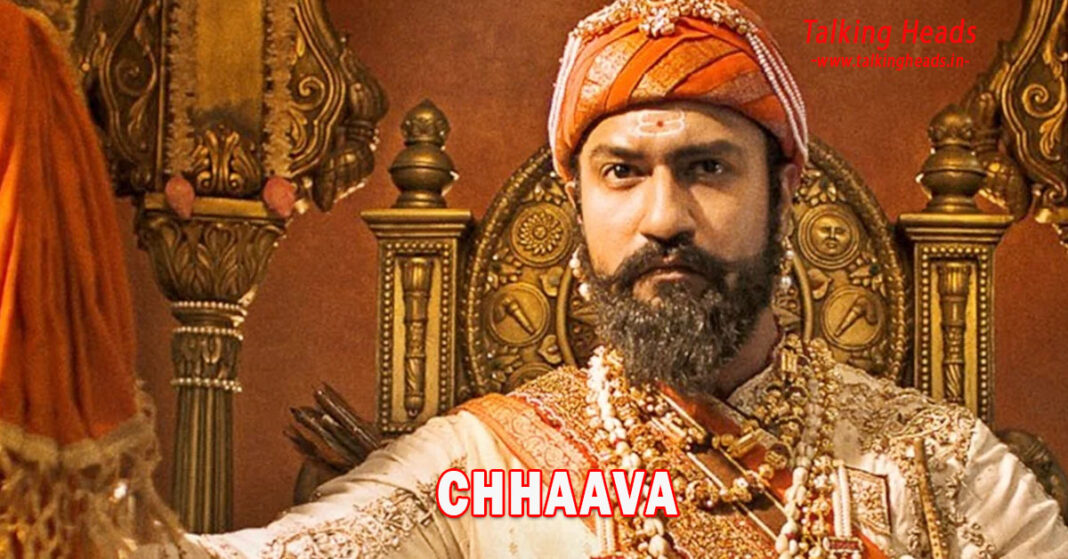Movie Review: Chhaava
Director: Laxman Utekar
Cast: Vicky Kaushal, Rashmika Mandanna, Akshaye Khanna, Ashutosh Rana, Vineet Singh, Divya Dutta, Neil Bhoopalam
Runtime: 161 minutes
Laxman Utekar’s Chhaava is an ultra-loud, ultra-violent, and exhausting historical epic that brings to life the story of Sambhaji Maharaj, the son of the legendary Shivaji Maharaj. Adapted from the Marathi novel by Shivaji Sawant, the film attempts to carve out a space for Sambhaji’s story, separate from the towering legacy of his father, but struggles under the weight of its relentless action sequences and high-decibel dramatization.
The film opens with a visceral and blood-soaked battle, where a fearless Sambhaji (Vicky Kaushal) leads a victorious assault on a Mughal outpost. The camera stays close to Kaushal, showcasing his fierce and unwavering presence in battle, cleaving enemies with a brutality that sets the tone for the rest of the film. The violence is relentless, with detailed, almost gratuitous gore that makes it clear—this is not a film for the faint-hearted.

The central conflict revolves around the repeated attempts of the Mughals, led by a cunning yet oddly restrained Aurangzeb (Akshaye Khanna), to crush the Marathas. However, the bigger threat to Sambhaji comes from within his own ranks—his scheming stepmother (Divya Dutta) and her allies, who seek to dethrone him. Amidst the ceaseless battle cries and sword fights, the film intersperses moments of domesticity, where Sambhaji finds solace with his devoted wife, Yesubai (Rashmika Mandanna). Mandanna, unfortunately, is confined to a familiar role—the ever-supportive, doe-eyed spouse—a trope she seems to be repeating across both South and North Indian cinema.

Vicky Kaushal is the heart and soul of Chhaava, fully immersing himself in the role with an intensity that commands attention. His portrayal of Sambhaji is raw, passionate, and physically demanding, making it clear that he is giving his all. However, the film itself does not give him much to work with beyond war cries, brooding monologues, and action-heavy sequences. Akshaye Khanna, unrecognizable under prosthetics as the aged Aurangzeb, delivers an interesting performance, though his character is ultimately reduced to a one-dimensional antagonist. Ashutosh Rana and Vineet Singh provide solid support, but the screenplay doesn’t allow them enough space to shine.

One of the film’s biggest drawbacks is its relentless need to hammer in its themes with little nuance. The portrayal of Mughals follows a familiar pattern seen in recent historical dramas, where invaders are painted in starkly negative shades, with Aurangzeb depicted as particularly ruthless. While Chhaava does attempt some balance by portraying Akbar (Neil Bhoopalam) in a more neutral light, the overall depiction leans heavily into the narrative of Maratha valor against Mughal tyranny.
Visually, the film is grand, with sweeping battle sequences, detailed period costumes, and impressive set designs. However, the overuse of slow-motion shots and dramatic music swells can feel excessive, adding to the film’s already overlong runtime of 161 minutes. The action sequences, though well-choreographed, eventually become repetitive, making the second half of the film feel like a test of endurance.
In the end, Chhaava is a film driven by Vicky Kaushal’s sheer commitment to the role, but it gets bogged down by its own excesses. For those who enjoy grand historical epics filled with action and high-stakes drama, this film might provide some spectacle. However, for viewers looking for a more nuanced and well-balanced retelling of history, Chhaava falls short of expectations.
Rating: 2.5/5










